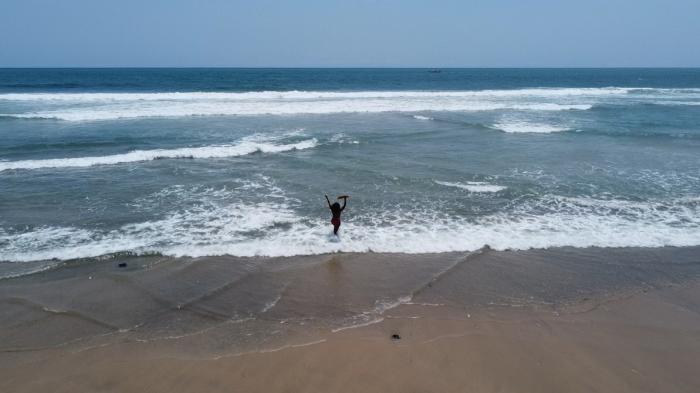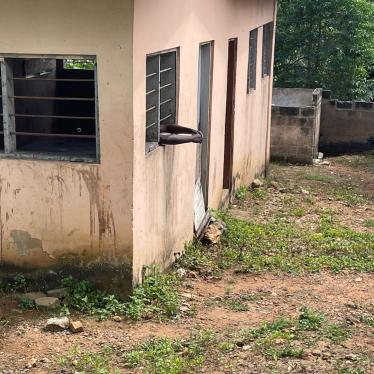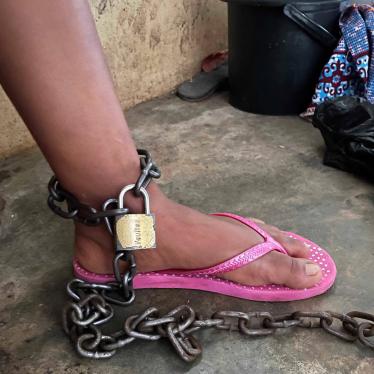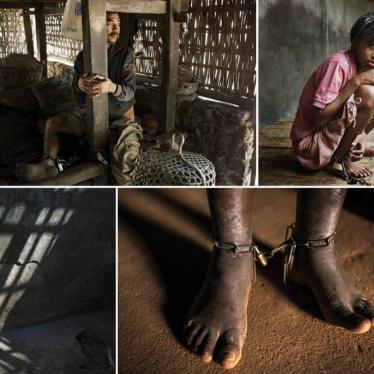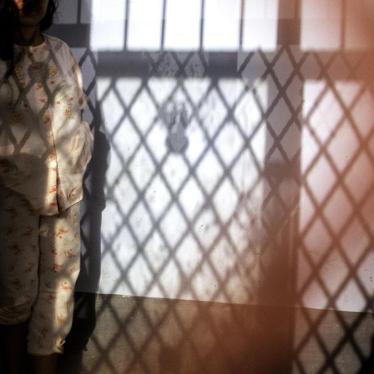(Accra) – The Ghanaian government should provide rights-based mental health services and adequate support for housing, independent living, and job training for people with mental health conditions, Human Rights Watch said today, ahead of the 75th anniversary of the Universal Declaration of Human Rights on December 10, 2023. Human Rights Watch released a short film featuring three people who were locked up because they have a mental health condition and who talk about what freedom and independence meant for their recovery.
Human Rights Watch found that families often take people with real or perceived mental health conditions, or psychosocial disabilities, to faith-based or traditional healers because of widely held beliefs that such disabilities are caused by a curse or evil spirits, and because their communities have limited, if any, mental health services. According to the Ghana Mental Health Authority, there are more than 5,000 “prayer camps” and traditional healing centers across the country. Psychiatric facilities are also understaffed and in poor condition and continue to resort to forced treatment.
“With the right government supports and services, as well as awareness-raising campaigns to combat stigma, people with mental health conditions can live full and independent lives, rather than languish in chains or hospital beds,” said Elizabeth Kamundia, deputy disability rights director at Human Rights Watch. “Ghana has an opportunity to demonstrate that universal human rights are indeed universal by educating the public about mental health and investing in community services.”
Over the past decade, Human Rights Watch visited more than a dozen prayer camps and documented cases of people with psychosocial disabilities who were chained for long periods, some for years. Beyond deprivation of liberty, they endured horrific abuses, unsanitary conditions and lack of hygiene, and lack of access to health care.
For its video, Human Rights Watch spoke with people with mental health conditions in Ghana who are living meaningful lives in the community with support. They include medical professionals, social media influencers, and avid churchgoers. Human Rights Watch found that they are loved by their families and appreciated for their contributions to their communities.
One woman included in the video described being physically restrained in a psychiatric facility by as many as five men holding her down to forcibly inject her with medication. “I have been ostracized a lot,” she said. “You know, there were times where I lost employment opportunities. And it affected almost all aspects of my life.”
With the support of her family and an accommodating employer, she is now thriving in the community. “Being independent is a must,” she said. “It is something that we all have to demand and have. So, you can actually ... be yourself, live your best life.”
Another woman in the video had been shackled, and describes when they took the shackles off and locked her in a room. “I would be in there in the room alone during the night,” she said. “I really didn’t like that experience, being alone locked up.” She now works as a mental health nurse. She said that Ghana’s government should raise awareness and reduce stigma so that families and communities can offer support, especially when a person is going through a crisis.
A man in the video said he was locked away at a prayer camp in the Greater Accra area for two years when his children were still young. He said that he thought about them a lot and would sometimes cry bitterly. He is now married and supports his family as a receptionist at a church-based organization and a salesman. “That’s what I know is a good community,” he said. “You have your freedom, you have your peace.”
The Ghanaian government should take a number of steps to meet its obligations under international human rights law. The Mental Health Authority should enforce the ban on shackling by adequately resourcing the visiting committees who monitor these facilities and refer cases to the newly established Mental Health Tribunal.
The government should take steps to adopt a levy, envisioned in the 2012 Mental Health Act, that would fund desperately needed mental health services across the country. Donors to Ghana, including the United Kingdom, United States, and Canada, should support funding for health services that includes mental health and is adequate to meet the needs. Investment also should be made in public education campaigns to fight the entrenched stigma and misinformation about mental health.
“The Ghanaian government should make community services for people with mental health conditions the norm, rather than the exception,” Kamundia said. “That way, they too can have a life free of chains as guaranteed for all under the Universal Declaration of Human Rights.”
